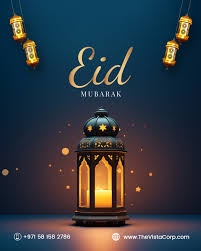
Introduction
Eid is one of the most significant religious holidays in the Islamic calendar, celebrated by Muslims around the world. Its importance extends beyond mere festivity, embodying themes of faith, charity, and community. Understanding the essence of Eid provides insight into the values and traditions that shape Muslim identity. With the recent rise in interfaith dialogues and cultural exchanges, the relevance of Eid is more pronounced than ever.
What is Eid?
Eid, which literally means “festivity” in Arabic, is celebrated in two forms: Eid al-Fitr and Eid al-Adha. Eid al-Fitr marks the end of Ramadan, a month of fasting, prayer, and reflection. It is a day of gratitude, where Muslims express thankfulness to Allah for the strength to complete the fast. Eid al-Adha, on the other hand, commemorates the willingness of Ibrahim (Abraham) to sacrifice his son as an act of obedience to God. It coincides with the annual Hajj pilgrimage, one of the five pillars of Islam.
Celebrations and Traditions
During Eid al-Fitr, Muslims typically start the day with a special prayer known as Salat al-Eid, followed by a sermon. After that, they share festive meals with family and friends, often including traditional dishes and sweets. It is also customary to give Zakat al-Fitr, a form of charity aimed at helping the needy partake in the celebrations.
Eid al-Adha celebrations include the ritual sacrifice of an animal, usually a goat, sheep, or cow, symbolizing Ibrahim’s willingness to sacrifice. The meat is then distributed among family, friends, and those in need, reinforcing a sense of community and care for the less fortunate. Both Eid celebrations are marked by wearing new or best clothes, visiting friends and family, exchanging gifts, and engaging in various festivities.
Global Significance and Recent Events
In 2023, Eid celebrations were particularly noteworthy as they marked a return to traditional observances following restrictions from the COVID-19 pandemic. In Canada, cities such as Toronto and Vancouver saw vibrant parades, interfaith gatherings, and community events, showcasing the diversity of Islamic culture. These occasions provided a platform for understanding and unity among different cultures and religions.
Conclusion
>Eid is not just a holiday; it embodies the core values of Islam and serves as a reminder of compassion, generosity, and community. As global perspectives continue to evolve, the celebration of Eid fosters cultural appreciation and dialogue among communities. Understanding what Eid represents helps bridge gaps and contributes to a more inclusive society that acknowledges and respects diverse traditions.






